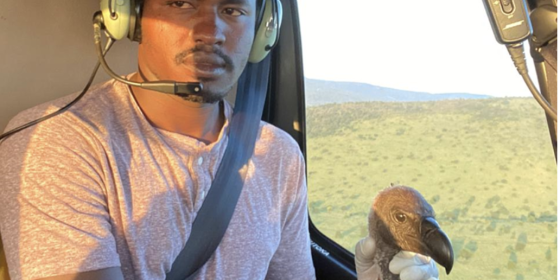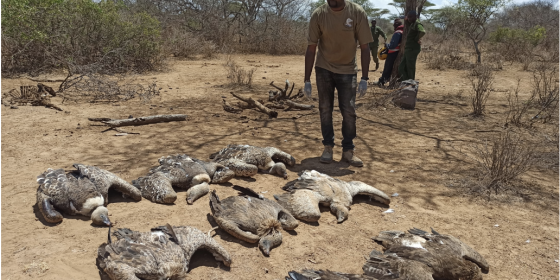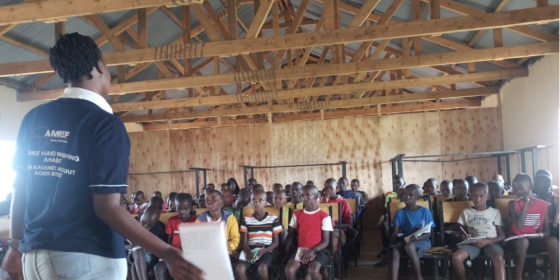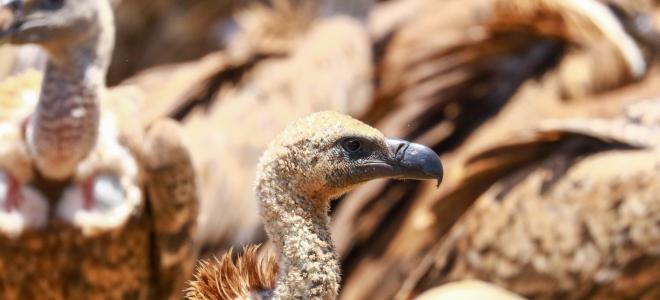Mass poisonings are killing predators and scavengers across Africa. Poisoning occurs for two main reasons. In Kenya, when a predator kills domestic livestock, pastoralists lace the carcass with poison to kill off other nearby predators. In other parts of the continent, poachers deliberately poison vultures to prevent them from flying over carcasses and revealing the poachers’ presence. Poisons are also used to harvest fish and birds for food, and for obtaining animal body parts to supply the trade in belief-based use. More than 500 vultures have been killed from a single poisoning event. Many other species including eagles, lions, leopards, hyenas, storks, and jackals also unwittingly feed on these poisoned baits.
Our Impact:
3915 people trained in conflict prevention and poisoning response, 51 poisonings prevented by trainees, 52 participants in our “Vulture Protector Network”, 100 first responders trained

Abraham Loomuna
Africa's Raptors are in Crisis
Our Solutions

Abraham Loomuna
Our Solutions

Valerie Nasoita






